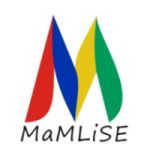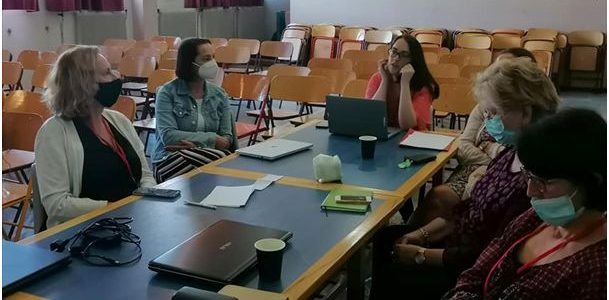Records of the 3rd Transnational Project Meeting (TPM 3)
Number of the meeting: the 3rd Transnational Project Meeting (TPM3)
Date of the Meeting: 07.10.–08.10.2021
Location: Ioannina (hybrid participation was possible)
Hosting Institution: 2nd Junior High School of Ioannina Intercultural Education, Greece
Day 1: 7th of October, 2021
08:30-16.30 (CET), 9:30-17.30 Greece
This TPM took place as planned in the project proposal. Four partners sent in-person teams (UL, CTI, ODN, AMU) and two partners participated online (BIEU, BREU) with the 2nd Junior High School of Ioannina Intercultural Education playing the role of the host organization. Lists of attendance were distributed on both days. In total the meeting gathered 22 persons, including 9 who attended it online. The meeting progressed as planned.
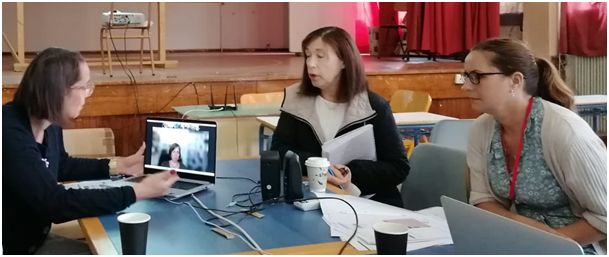
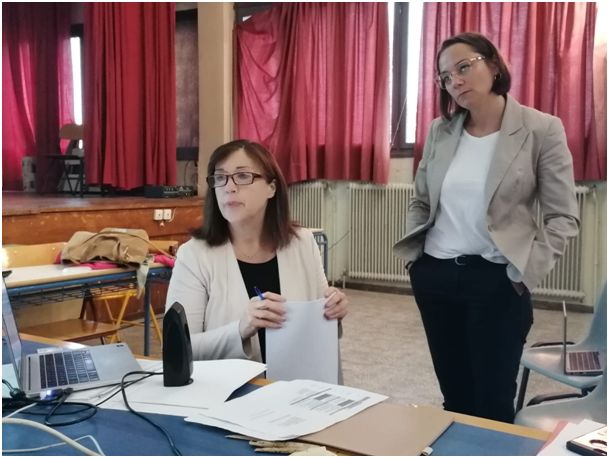
The meeting was started by a welcome address by the Headmaster of the 2nd Junior High School of Ioannina Intercultural Education, Mr. Stefanos Syrmakesis, wishing the partners fruitful work.
The first topic on the agenda was a discussion about a publishing outlet for IO1. The partners were reminded that the manual is required to be published in open access so they need to choose a publisher accordingly. AMU suggested Wydawnictwo Rys (https://wydawnictworys.com/) but a different outlet is possible as well. Sandra Ballweg suggested a publishing opportunity in Germany but it needs to be checked if an editing and open access format are possible for them in the English language. The partners will have a discussion about the publishing outlet during one of the online meetings planned for early spring 2022.
Later, the discussion turned to the successive chapters of IO1. It concentrated on the accessibility and practicality of the manual. The partners decided that, if possible, the content should pay attention to the fact that teachers are at different stages of professional development in the particular partner countries. Thus, the best approach is to respond to the needs of both the early career teachers and those at later stages of professional development, jointly with the fact that even experienced teachers do not have expertise in the topic of instructing multilingual children.
After a break, the partners started to discuss the progress of IO1 Chapter 3. The chapter leader, Sandra Ballweg, presented its detailed structure, on the basis of which a first draft will be written (by the team from the Bielefeld University). Later, a plan and first draft of Chapter 4 was presented by Angela Farrell (UL). She declared that some sections would be elaborated further but a full first draft will be ready for the online meeting in October.
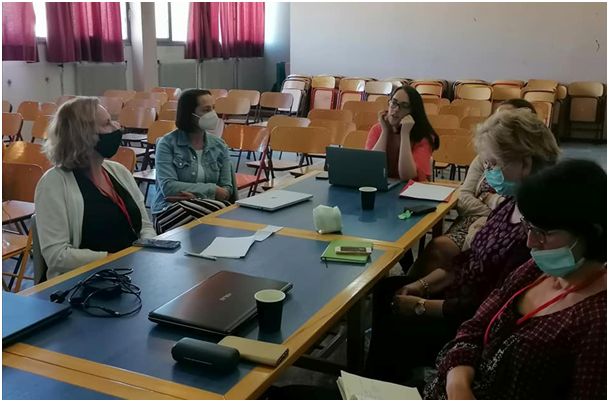
After a lunch break, the Bremen University team (led by Andrea Daase, co-leading: Angela Farrell and the host team) presented a full structure of Chapters 5 and 6, allowing the teams to start writing the first draft (to be ready for the online meeting in October). During the discussion of this chapter’s content, it was suggested that perhaps there is a need to put together an additional workshop concentrating on critical language awareness, sensitivity to culture-based genre specificity, and more nuanced language-use sensitivity (Workshop 10). The Ioannina team advocated for an approach in which there is also a place for a revision of principles of teaching along with more advanced matters. This concluded the partners’ discussion of IO1.
The next point on agenda was establishing detailed rules, guidelines, procedures, and schedules concerning piloting of the teaching and training materials (IO2). The workshops’ themes and partners involved in their preparation have been revised during this discussion. It was decided that each workshop can start from a reflection session where teachers share their experience and knowledge concerning a particular topic. The presentation stage may exploit the content of the manual. The focus of the workshops needs to be very practical.
The last point tackled on the first day of TPM3 was solving encountered problems in the project and managing conflicts, analysing and reviewing the risk register. The partners oversaw the tasks related to project management and output delivery. The issue raised concerned scheduling the tasks related to the IOs’ development. Realistic deadlines were set and task leaders were nominated.
Day 2: 8th of October, 2021
08:30-15.00 (CET), 9:30-16.00 Greece
After the welcome session and organisational matters, the partners discussed management and budget issues. It was established that the consortium will continue to have regular online meetings on the last Fridays of each month (exceptions possible) at 8.00 in Ireland, 9.00 in Germany and Poland, 10.00 in Greece.
The next online meeting will take place on the 29th of October 2021. Its preliminary agenda is as follows: a discussion on the first drafts of chapters (IO1), feedback on IO3 (Moodle, especially with regard to the structure of the platform, layout, organisation of teaching materials into sections, quality control); a discussion on disseminating video materials (open or closed YT channel), and feedback after C2 and TPM3.
The meeting in November will take place on the 26th of November. Its preliminary agenda involves a discussion on the content, responsibilities, and technicalities of IO4; a more focused discussion on the content of particular workshops (IO2).
The consortium also confirmed that the next TPM (4) will be held at the University of Limerick (preliminary date: the second week of May 2022; two working days). Apart from the topics mentioned in the project proposal, this meeting will involve a training session on the design of teaching materials (put together by UL).
The Steering Committee also awarded three of the long-term trainings planned in the project (C3 and C5). Anna Berezowska, the project office manager, informed the Steering Committee that in September 2021, a competition was launched at AMU for 3 long-term training placements: two at the University of Limerick and one at the University of Bremen. The competition was announced to UAM staff both through the project website and through a university-wide newsletter. Namely, a note about the competition with a call for proposals appeared on the project website: https://mamlise.home.amu.edu.pl/?p=772 and in a bulletin for scientific employees of Adam Mickiewicz University: https://uam.sharepoint.com/sites/ICentrum-Komunikatow/SitePages/Sta%C5%BCe-szkoleniowo-badawcze-w-projekcie-MaMLiSE.aspx
The competition was addressed to researchers with at least a doctoral degree, an adequate command of academic English/German language at level C1/C2, and who have the knowledge, skills, and proven scientific achievements relevant to the project’s thematic scope. To enter the competition, candidates had to send their CVs to the MaMLiSE project email inbox till 22 September 2021.
Three people applied for the competition by sending their CVs and short justifications for their applications. Two of them applied for the internship at the University of Limerick and one at the University of Bremen. The criteria taken into account were: previous cooperation with the MaMLiSE consortium (30 points), knowledge of academic English/German language at the level of C1/C2 (30 points), documented scientific achievements (40 points). All candidates satisfactorily met each of the merit criteria.
Since there were three applicants for the three available places, it was decided to award the internship places according to the applicants’ applications. The qualified persons are:
University of Limerick: prof. UAM dr. hab. Emilia Wąsikiewicz-Firlej, prof. UAM dr. hab. Anna Szczepaniak-Kozak
University of Bremen: Prof. UAM dr hab. Sylwia Adamczak-Krysztofowicz. The candidates will receive a certificate of internship.
After a break, Anna Szczepaniak-Kozak, the project coordinator, opened a session about management issues.
After a break, the partners discussed IO3 under the leadership of CTI (Maria Fountana). The partners learnt that the first version of the e-learning platform had been developed by CTI and organised into sections. The sections are: the training modules for the project partners, nine workshop sections, partner collaboration area. The main set-up of the platform has been prepared but the partners decided that its graphic layout needs fine-tuning. The platform also needs to have a section for teaching materials divided into the languages of the project and particular school subjects. The materials which were used during the Bielefeld seminar and open day (those which have a clear copyright status) will also be transferred there. The partners need to finalise the work on the structure of the platform so that CTI could move it to the AMU server next year (2022). CTI also mentioned that there needs to be one more training session on Moodle (topic to be specified later).
The partners were informed that the recordings of the training sessions devoted to the platform (which took place during C2) are uploaded to the project disc/drive. All videos relevant to the platform will be uploaded to a YouTube channel set up by AMU (responsibility of the project office). They will be linked to the e-learning course.
The project office manager (Anna Berezowska) will prepare a form to be used by the partners to obtain copyrights from teachers/material designers whose teaching materials we are going to use (copyrights release). She will ask advice of Michelle Daly in this respect.
Later on, the IO4 leader (Sandra Ballweg) presented aims and expected products within the output (a webpage, a leaflet, and videos). She reminded the partners that at least 3-5 short videos are to be prepared. Some members of the project team agreed to contribute to this output (UAM, ODN, UL) and nominated team members. The site for the website could be provided on AMU server (the name of the site needs to be decided) but it can also take the form of a section on the project website (to be decided). A preliminary list of home languages has been drafted (Arabic, Farsi, Russian, Ukrainian, Tagalong, other possible too). The partners will provide translation of video subtitles and the brochure into these languages. Technical aspects were mentioned as well, especially the quality of recordings to be taken. The partners need to check what their staff and technical potential are in this respect. The partners will discuss the state of general preparations for IO4 development during the November online meeting.
After a lunchbreak, the discussion turned to the Scopus/Web of Science/ERIH+ journals for the publication of academic papers (IO5). The partners were reminded that it is necessary to publish at least 3 journal articles written in international teams. The journals need to be open access and guarantee academic credibility. AMU team has informed the partners about one publishing possibility: a special issue of Glottodidactica (2023/1). All partners can send a proposal to the call announced on the journal’s webpage. The call for papers is available here: https://pressto.amu.edu.pl/index.php/gl/announcement. The deadline for abstract submission is 31.12.2021.
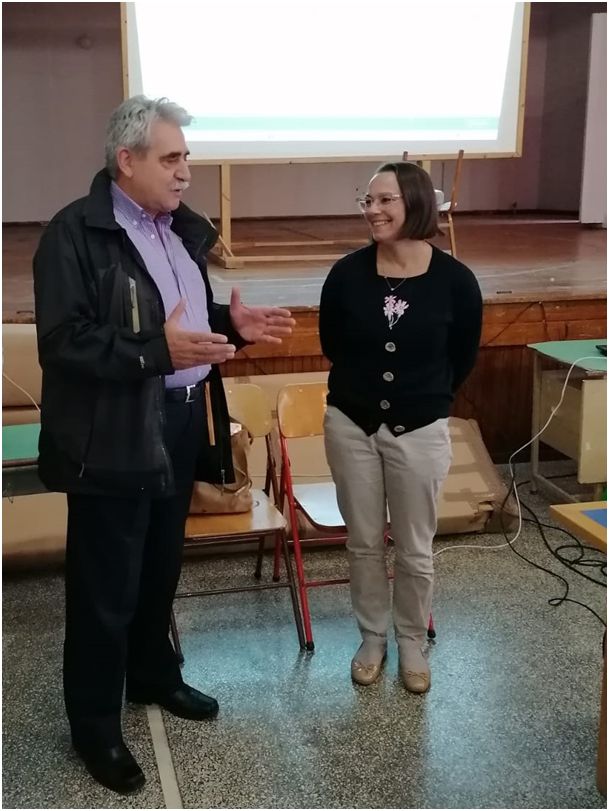
Afterwards, a farewell session followed with refreshments and networking. Both online and in-person participants received certificates of attendance.
Report prepared by Anna Szczepaniak-Kozak
